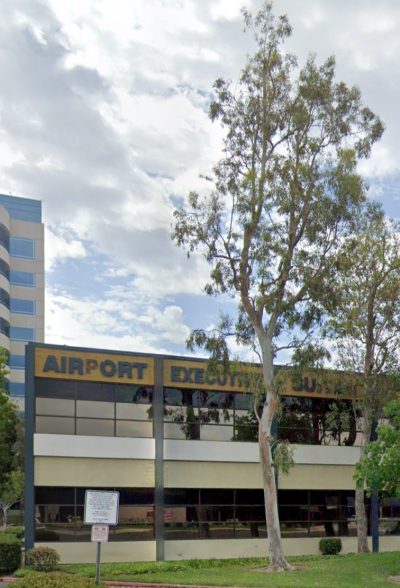Did You Fail to Report Your Foreign Account via the Foreign Bank Account Report? Consider an IRS Voluntary Disclosure With Experienced FBAR Tax Attorney Andrew L. Jones
IRS Voluntary Disclosure Program Helps You Avoid Criminal and Civil Penalties –
Call (415) 745-1924 to speak immediately and personally with experienced FinCEN Form 114 (FBAR) and FATCA tax attorney Andrew L. Jones.
How Do I Know If I Have a Foreign Account Reporting Obligation?
If you are a:
- US person (US citizen, US permanent resident or individuals who are ‘substantially present’ in the US, a group which includes most US work visa holders) and
- Have (or had) a foreign bank account or any other kind of foreign financial account and
- Never reported that account to the US on the Foreign Bank Account Report (FBAR, also known as FinCEN Form 114) and/or
- Didn’t report that account’s earnings on your US income tax return…
You could be exposed to substantial criminal and financial consequences – but there are solutions!
Call (415) 745-1924 to receive a free, thorough and completely confidential consultation. You will talk directly with FBAR disclosure tax attorney Andrew L. Jones to determine if you are eligible to resolve your noncompliance through the Streamlined Domestic Offshore Procedures, the Delinquent FBAR Submission Procedures and/or the Delinquent International Information Return Submission Procedures. Experience matters, and working with our firm, which limits its practice exclusively to IRS foreign asset voluntary disclosure cases, means no surprises and no learning on the job.
We are available by phone nationwide or by appointment at your choice of 7 different offices in California and Washington. We answer your calls from 8 am-9 pm PST, 7 days a week. After hours, please leave a message or visit our contact form and we will reply the next morning.
What Are My Options to Resolve My Foreign Account Reporting Noncompliance?
At current writing, there are three main options for voluntarily disclosing prior foreign account reporting or foreign account taxation noncompliance:
- Streamlined Domestic Offshore Procedures or Streamlined Foreign Offshore Procedures: If your failure to informationally report foreign accounts or assets (via the FBAR or Forms 3520, 3520-A, 5471, 8621, 8865 or 8938) and/or report and pay tax due on the earnings of those accounts or assets was non-willful, meaning negligent but not intentional, either of the Streamlined program options require (1) three years of delinquent or amended federal income tax returns and (2) six years of delinquent or amended Report of Foreign Bank and Financial Accounts (‘FBARs,’ formally titled FinCEN Form 114).
If you disclose your noncompliance via the Streamlined Domestic Offshore Procedures, you must pay a penalty equal to 5% of the highest account balance reached in one of the last six years (specifically, the single highest year-end valuation date among the last six year-end dates).
No such penalty is due for participants in the Streamlined Foreign Offshore Procedures. This program is, however, open only to those who (in one or more of the last three past-filing-deadline tax years) were physically inside the territorial borders of the US no more than parts or all of 35 days. Individuals qualified for that variant of the Streamlined Filing Compliance Procedures pay only the actual tax due from the last three years’ delinquent or amended tax returns plus (usually-modest) statutory interest, and do not pay the 5% penalty required from those participating in the Streamlined Domestic program.
- Delinquent FBAR Submission Procedures and Delinquent International Information Return Submission Procedures: You may file delinquent or amended FBARs or Forms 926, 3520, 3520-A, 5471, 8865 and/or 8938 without paying a penalty if you had reasonable cause for your foreign asset reporting non-compliance. Not surprisingly, establishing that your errors occurred for reasonable cause is difficult since the standard of taxpayer diligence is very high and very dependent on facts. International tax attorney Andrew L. Jones is deeply experienced with the Delinquent Procedures disclosure options and will gather relevant facts and where the facts support this option, will prepare a statement of reasonable cause sufficient to convince the IRS not to assess a penalty for any of your failures to file those Forms.
- Voluntary Disclosure Practice (which replaced, effective September 2018, the IRS Offshore Voluntary Disclosure Program): this program is only appropriate for individuals who intentionally failed to meet their known legal obligations (meaning, their noncompliance was willful). While this program (effectively) assures participants protection from criminal prosecution and provides certainty about the penalty required to gain protection from prosecution, the penalty costs are staggering: the centerpiece (but not only) penalty of this program is equal to 50% of the value of noncompliant assets held by the individual at the highest valuation point in the last six years. Given the extremely financially costly terms of this program, it is only appropriate for individuals who cannot credibly certify that their errors were either non-willful in nature (the IRS Streamlined Procedures options above address such a situation) or credibly argue that they had no possible reasonable pathway to discovering their obligations (the IRS Delinquent Procedures option above addresses such a situation).
In the view of international tax attorney Andrew L. Jones, this program is most appropriate for those individuals with extreme negative factual histories (clearly reflecting intentional noncompliance) and evidence of that intentional noncompliance is obtainable by the US authorities. For all others, the two preceding IRS disclosure options are likely more appropriate.
Foreign Account Disclosure Help
With the help of international tax attorney Andrew L. Jones, you can discover whether you were required to file the Foreign Bank Account Report (FBAR, also known as FinCEN Form 114, and formerly Form TD F 90-22.1). Andrew can also aid you in determining if you were required to file a Form 926, 3520, 3520-A, 5471, 8621, 8865 or 8938. If you were required to file any of those Forms and did not, we are available to discuss your violations and craft an individualized solution to quickly and conclusively resolve your legal exposure.
FBAR Voluntary Disclosure
How do I know if I committed an FBAR violation or international information return violation and should consult with a tax attorney immediately regarding a disclosure to the IRS?
If you can answer ‘yes’ to the following three numbered questions below, you very likely have failed to file an FBAR, are subject to substantial FBAR penalties, and require the services of a skilled IRS voluntary disclosure attorney:
- You are now or any time in the last six completed tax years were either a US citizen, a US permanent resident (‘green card’ holder), or were ‘substantially present’ in the US (e.g. most US work visa holders)
- In one or more years from 2018 to present, you had any of the following statuses with regards to a foreign financial account:
- Legal title (ownership) either alone or with other persons, or,
- Signature authority, meaning, through some manner of action, you had the ability to direct that funds be moved in or out of the account (such as directing the wiring funds in or out of the account, or writing checks on the account) or the ability to control the internal events in an account (such as ordering the purchase or sale of stock in a brokerage account). Signature authority often takes the form of a ‘power of attorney’ or ‘secondary account holder’ status.
Notably, you may have an FBAR filing requirement even if you do not consider the account to be ‘your money’ and even if the account is meant to benefit another person (meaning, you have no ‘beneficial interest’). The obligation to file an FBAR exists if you have legal title to the account or have the ability to control the account in some way. Thus, for example, many US persons with co-title over foreign accounts alongside elderly family members are required to file an FBAR, as are individuals ‘holding money for others’ or controlling informal pools of ‘family money.’
Additionally and alternatively, you would also be required to file an FBAR to report a foreign financial account of which you did not have legal title and over which you did not have signature authority, if the owner of record or holder of legal title to that account is nonetheless:
- An agent, nominee, attorney or any other person acting in some other capacity on your behalf with respect to the account (take note of the broadness of that last clause!), or,
- A corporation of which you own (directly or indirectly) more than 50% of total value of shares of stock or more than 50% of the voting power of all shares of stock, or,
- A partnership in which you own (directly or indirectly) more than 50% profits interest in a partnership or more than 50% of partnership capital, or,
- A trust of which you are the trust grantor and have an ownership interest in the trust for US federal tax purposes, or a trust in which you have greater than 50% present beneficial interest in the assets or income of the trust for the calendar year, or finally,
- Any other entity in which the US person owns directly or indirectly more than 50% of the voting power, total value of equity interest or assets or interest in profits.
A financial institution is considered foreign if it is physically located outside of the US. The types of FBAR-reportable accounts at a foreign financial institution include:
- Checking, savings, or current accounts
- Certificate of deposit or time deposits
- Brokerage, investment, or private wealth management accounts
- Cash-value life insurance or cash-value annuities
- Retirement accounts (of virtually any nature other than the country’s national pension or Social Security-equivalent)
- Options or commodity futures accounts
- The composite value of your foreign financial accounts exceeded $10,000 US dollars equivalent (to calculate composite value, add together the value of each separate account at its independent high value at any moment during the year, with no subtraction for ‘double-counting’ of funds transferred intra-year from one foreign financial account to another.)
If in any year you met Conditions 1-3 above, you were required to file the Foreign Bank Account Report, formally known as FinCEN Form 114, and under the current statute of limitations, all failures to file from 2018 to present are ‘open statute’ and subject to penalty. Additionally, under such circumstances, you were likely also required to report these same details (and others) on the IRS’ Form 8938 (‘Statement of Specified Foreign Financial Assets’). The Form 8938 does not have a statute of limitations as does the FBAR; all failures to file from 2011 to present are ‘open statute’ and subject to penalty.
In a separate but closely-related area of foreign asset reporting to the US, you may have committed other foreign asset reporting violations if you failed in any year (even before 2018) to timely report:
- Your transfer of more than $100,000 cash (or other assets) to a foreign corporation on the Form 926,
- Your interest in a foreign corporation on the Form 5471,
- Your interest in a foreign partnership on the Form 8865,
- Your receipt of gift(s) from a living foreign person and/or inheritance(s) from a foreign estate, of $100,000 (USD-equivalent) or more, in a single calendar year, on the Form 3520,
- Your interest in or transactions with a foreign trust, on the Forms 3520 and/or 3520-A, or
- Your interest in a Passive Foreign Investment Corporation on the Form 8621.
- Your receipt of income from one or more foreign financial accounts or assets
Failing to report any of these assets or events, especially foreign bank and financial accounts, is a significant civil violation and could also expose you to criminal prosecution.
Civil FBAR penalties
– The penalty for a willful failure to file the FBAR form is (as of 2024) equal to the greater of $161,166 or 50% of your undisclosed foreign accounts’ value(s).
– The penalty for a failure to file the FBAR which is negligent (meaning, unintentional but yet avoidable had the US person exercised necessary diligence) is, as of 2024, $16,117. This penalty amount has, since 2017, been tied to an inflation factor; in 2016 and before, the penalty was fixed at $10,000. The FBAR negligence penalty is assessed once per year (e.g. on a per-FBAR basis).
– Finally, in narrow circumstances that an FBAR tax attorney like Andrew L. Jones is best equipped to analyze and review, you may avoid this FBAR negligence penalty by a showing that you had reasonable cause for your failure to file. The defense of reasonable cause is already present in the statutory law, but the IRS has (arguably unnecessarily) formalized this concept via the Delinquent FBAR Submission Procedures.
Criminal FBAR penalties
– If the IRS determines that your failure to file the FBAR form was willful, and the failure to report your foreign financial account(s) also resulted in your not reporting a significant amount of taxable earnings to the US, you are at particular risk for prosecution both under the laws establishing FBAR violations (Title 31 of the US Code) and the laws establishing tax violations (Title 26 of the US Code).
Only an attorney can competently advise you on these issues and do so under the attorney-client privilege. Discussion these sensitive issues with a CPA or any other non-attorney is not protected by the attorney-client privilege and is not informed by an attorney’s expertise in criminal matters.
Why Choose An Experienced FBAR Tax Attorney for Your Voluntary Foreign Account Disclosure?
International tax attorney Andrew L. Jones has more than a decade of experience in foreign account reporting and voluntary disclosures. He can analyze your specific situation and provide a specific solution. A good FBAR tax attorney will provide you with written and/or verbal advice based on your specific facts and circumstances, outlines your foreign account reporting problem, and recommends the best solution for addressing your non-compliance after intensive discussion of your personal priorities.
Discussions with a tax attorney are protected by the robust attorney-client privilege. This is not true if you make the mistake of consulting with any non-attorney, even a CPA.
What does an FBAR attorney do for you?
At a minimum, your foreign account disclosure attorney will advise and determine:
– Did you actually have an FBAR reporting obligation? Your tax attorney will determine whether you actually had an obligation to file a Foreign Bank Account Report (FinCEN Form 114). Sometimes your FBAR reporting obligation is very obvious, but in many more cases, a tax attorney’s detailed analysis of your specific facts and circumstances will confirm that your non-US financial account was not, for any number of reasons, reportable.
– Your options for solving your delinquent FBAR problem. If you did have an undisclosed foreign account and FBAR violations, the tax attorney’s written or verbal report will present the various tax solutions and discuss the strengths and weaknesses of each.
You need a trustworthy expert to guide you through this stressful process. If you choose to make a voluntary disclosure to the IRS (either through the Streamlined Domestic Offshore program, the Delinquent FBAR Submission Procedures, the Delinquent International Information Return Submission Procedures or the Voluntary Disclosure Practice), your tax attorney will be your guide through this complex process and ensure that every one of the necessary documents is prepared correctly and on-time.
FBAR Tax Attorney Andrew L. Jones – Experience
- He has guided hundreds of clients through the collective disclosure of over $300 million in previously-unreported foreign assets (statistics as of September 2024). Andrew has advised clients with undisclosed or hidden foreign bank accounts and financial assets ranging in value from $150,000 to eight figures.
- Andrew earned his J.D. and LL.M. in Taxation, with distinction, from Loyola Law School, Los Angeles, and has since 2009 limited his work as a tax attorney solely to international taxation and foreign account reporting controversies, compliance and planning.
- Not a single one of Andrew’s clients’ Streamlined Domestic Offshore Procedures or Streamlined Foreign Offshore Procedures filings have ever been challenged or rejected by the IRS.
- A substantial number of Andrew’s clients have successfully disclosed foreign asset noncompliance through the Delinquent International Information Return Submission Procedures and/or the Delinquent FBAR Submission Procedures. Where fact-appropriate and acceptable in risk profile, Andrew has aggressively deployed reasonable cause arguments, winning zero-penalty results in virtually every instance. This is a record of vigorous and effective advocacy which stands in sharp contrast to the risk-avoidant mindset of numerous other international asset disclosure attorneys whose solution for every instance of noncompliance – regardless of the facts – is to disclose via the Streamlined Procedures, leaving their innocent clients to pay an unnecessary penalty.
- Andrew personally handles every part of the legal process of your voluntary foreign account disclosure, responds personally to all your calls and messages, personally supervises the accounting phase (amendment of returns) of the client engagement and personally writes every word of your narrative statement (the Certification of Non-Willfulness for asset disclosures via the Streamlined procedures, and the reasonable cause statement for asset disclosures via the Delinquent International Information Return Submission Procedures).
Ask our competition: we think you’ll quickly learn that no other law firm offers this personal service commitment.
- Andrew has assisted taxpayers with undisclosed foreign accounts in countries around the globe, including (as examples) the United Kingdom, Switzerland, Germany, France, China, Malaysia, Philippines, Japan and dozens and dozens of other countries. His clients have included those with large private wealth management accounts in Switzerland’s most notorious banks – banks that were or are under active US criminal investigation and banks that employed account managers indicted criminally by the US. He has also worked with clients who owed tens or hundreds of thousands of dollars in unpaid US tax.
- Andrew’s clients have had a wide variety of additional factors complicating their offshore voluntary disclosures, including:
- The spouse who opened the foreign account is now deceased.
- Clients who received their accounts via a foreign inheritance (an inheritance event which may also be reportable on the Form 3520 if sufficient in value)
- Clients who survived the Holocaust or who have other personal or familial-origin reasons, not related to avoidance of US tax, for owning accounts in traditional tax, privacy or secrecy havens like Switzerland.
- Clients who did not know of their obligation to report their accounts on the FBAR, or had a good-faith misunderstanding of the FBAR filing requirement and/or US taxation of foreign bank account earnings.
- Elderly clients and their adult children/caretakers.
- Clients with signature authority over (but no beneficial interest) in hidden foreign bank accounts or with interest in foreign corporations, trusts or partnerships that controlled undisclosed foreign bank accounts.
- Clients who are US permanent residents (resident aliens) and are anticipating or are already in the process of acquiring US citizenship at time of discovering the issue of undisclosed foreign accounts.
- Foreign account disclosure clients who are divorced, separated, and estranged from spouses.
- Clients who at the same time as pressure or investigation by the US Department of Justice of their original custodial bank, moved their account to another bank in the same or another jurisdiction (and may have even done this multiple times)
- Clients with unreported or misreported foreign retirement arrangements such as pensions, annuities and/or life insurance policies
- Clients who were mis-advised by prior preparers and can only establish their reasons for substantial tax and/or informational noncompliance through documentation (and often, an affidavit from) that former preparer
Call IRS Voluntary Disclosure tax attorney Andrew L. Jones now at (415) 745-1924 for a free, fully confidential consultation to determine if you are eligible to solve your foreign account problems through the Streamlined Filing Compliance Procedures or the Delinquent International Information Return Submission Procedures!
Every foreign account or asset disclosure is unique and you will get personalized service directly with Andrew, with access evenings and weekends to meet your schedule.
Call now – (415) 745-1924!








